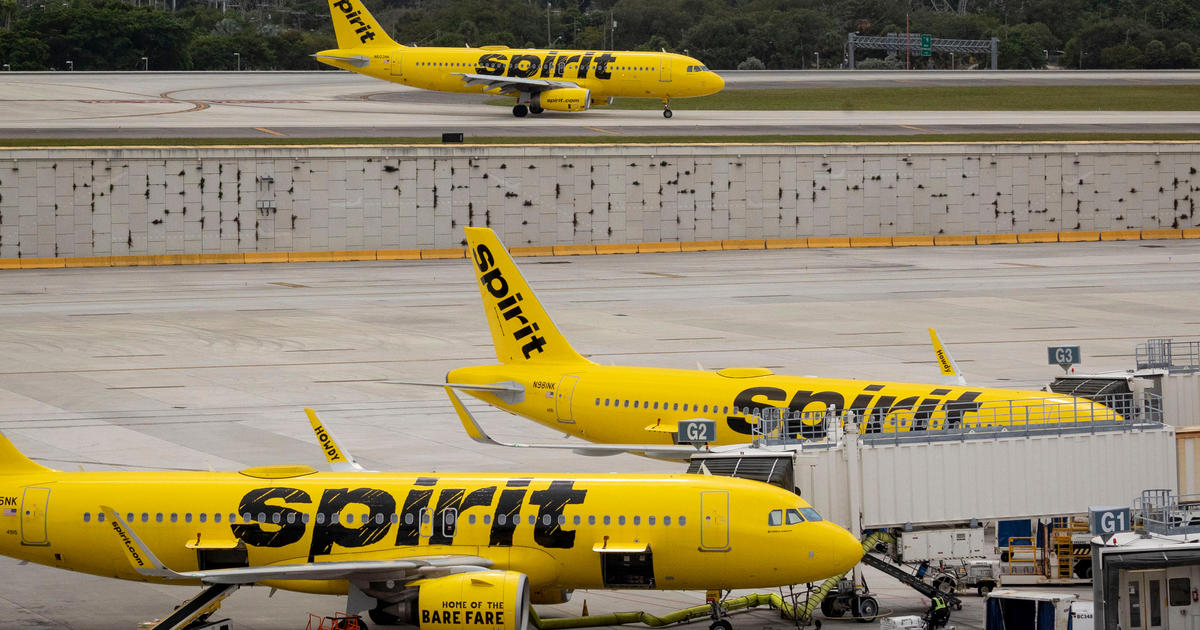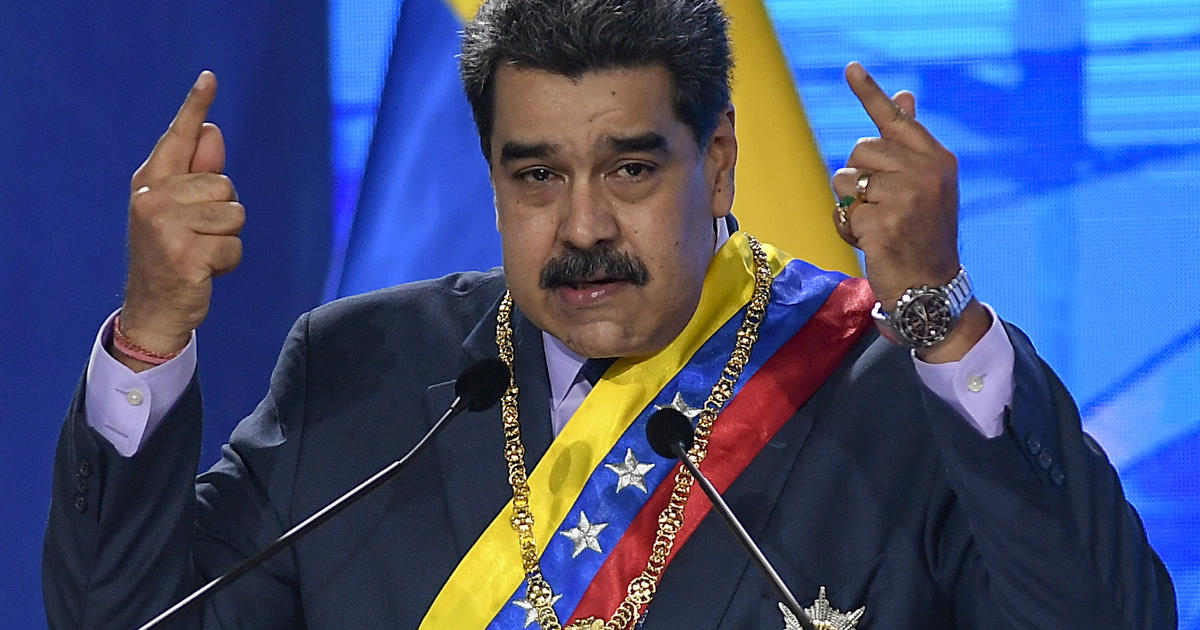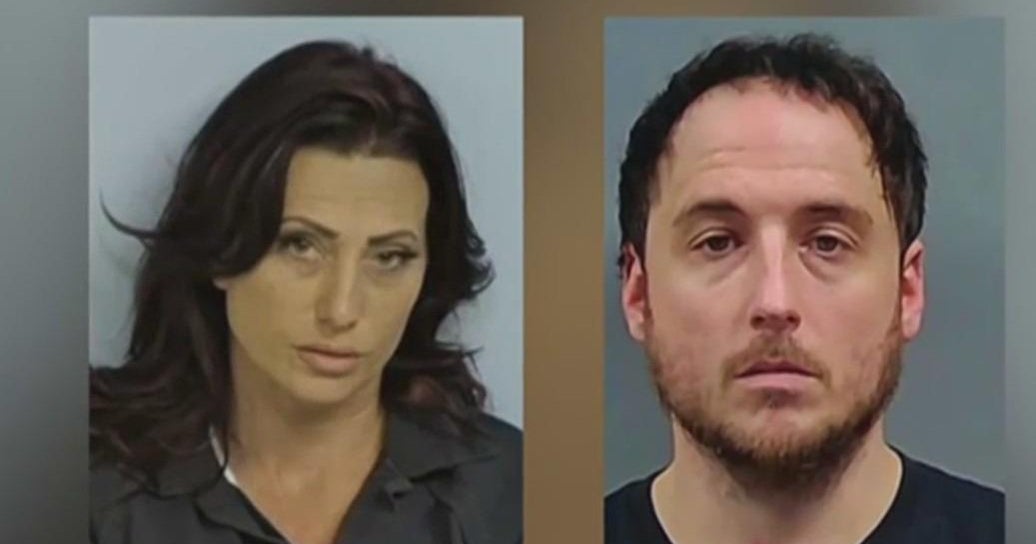Ex-US Diplomat Calls Reporter Biased In Posada Case
EL PASO, Texas (CBS4)- A conservative former U.S. diplomat testified in federal court Friday saying that an ex-New York Times reporter at the center of an anti-communist militant's perjury trial is biased against Cuban-Americans, especially those who oppose Fidel Castro.
He then lobbed identical charges at the Times itself.
Otto Reich was Secretary of State for Western Hemisphere Affairs from 2001 until 2004, a top advisor on Latin America under President George W. Bush. He was called as a Cuba expert by attorneys for Luis Posada Carriles, a Cuba-born, ex-CIA operative who faces 11 counts of perjury, obstruction and immigration fraud.
Reich condemned the work of Ann Louise Bardach, who was a contract writer for the Times in 1998, when she interviewed Posada from Aruba, where he was hiding.
Based on 13 hours of conversations, Bardach co-wrote a series of stories with then-Times Caribbean bureau chief Larry Rohter, saying Posada "proudly admitted authorship" of a wave of bombings at Cuban tourists sites between April and September 1997 which killed an Italian man and wounded about a dozen other people, some seriously.
The article is essential to the case because Posada sneaked into the U.S. in 2005 and underwent citizenship hearings in El Paso, during which prosecutors allege he failed to acknowledge masterminding the 1997 Cuban blasts. They also charge that he lied about how he made it into the country, and about having a false Guatemalan passport.
Posada, 83, spent years crisscrossing Latin America and working to destabilize communist regimes, often with the backing of the U.S. government. He is Public Enemy No. 1 in his homeland, featured on propaganda billboards and considered the nemesis of Castro, the island's president until 2009.
Bardach spent six days on the stand for the prosecution and said Posada spoke to the Times because he wanted more publicity for the bombings in the U.S. press, and to clarify that they were meant to discourage tourists from coming to Cuba, but not kill anyone.
Reich - who also served as U.S. ambassador to Venezuela for three years under President Ronald Regan - focused on attempting to discredit Bardach.
Lead Posada attorney Arturo Hernandez said Bardach had testified that she was "really fair, really accurate and really conscientious."
Reich replied, "Based on what I have read, which is quite a bit, I would say she is none of those."
"Her writing consists of distortion, misstatement of facts and in some cases fabrication," he said. "My opinion is that she has a bias in general against Cuban Americans and anti-Castro Cuban-Americans specifically."
When asked about the paper Bardach conducted the Posada interview for, Reich said, "There is a bias in The New York Times. There is a bias against Cuban-Americans in general and anti-Castro Cuban-Americans in particular."
The prosecution offered repeated objections to the line of questioning, but U.S. District Judge Kathleen Cardone overruled nearly every one.
Hernandez then read from one of two major books Bardach has written on Castro and the Cuban-American exile community, "Cuba Confidential," in which she mentioned Reich's work at the State Department in an unfavorable light. He testified that she never attempted to contact him before the book was published.
In an e-mail response, Bardach called Reich's statements "outrageous slander."
"Otto Reich's mud-slinging at reporters and media is well known. His list of prominent media victims is long and storied - going back to the mid-1980s," Bardach said. She added,
"over the years, I have contacted Mr. Reich for his comments by phone and fax, even offered to debate him. The offer still stands. He never responded."
New York Times spokeswoman Eileen Murphy referenced Bardach and Rohter's 1998 articles, when she said through one of the paper's attorneys that, "Otto Reich has not demonstrated any factual errors in the stories, nor has anyone else in the 13 years since their publication."
"Instead," Murphy said, "he has launched broadside attacks that are not worthy of a response."
A CIA agent until 1976, Posada participated indirectly in the failed Bay of Pigs invasion. He later served as head of the Venezuelan government's intelligence service and was arrested for planning the 1976 bombing of a Cuban airliner that killed 73 people. He escaped from a Venezuelan prison while still facing trial, however.
Posada helped Washington funnel support to the Contra rebels in Nicaragua in the 1980s, then, in 2000, he was imprisoned in Panama in connection with a plot to kill Castro during a summit there. He was pardoned in 2004 and turned up in the U.S. the following March - eventually prompting the current charges against him.
(© 2011 The Associated Press. All rights reserved. This material may not be published, broadcast, rewritten or redistributed. Learn more about our Privacy Policy and Terms of Use.)



